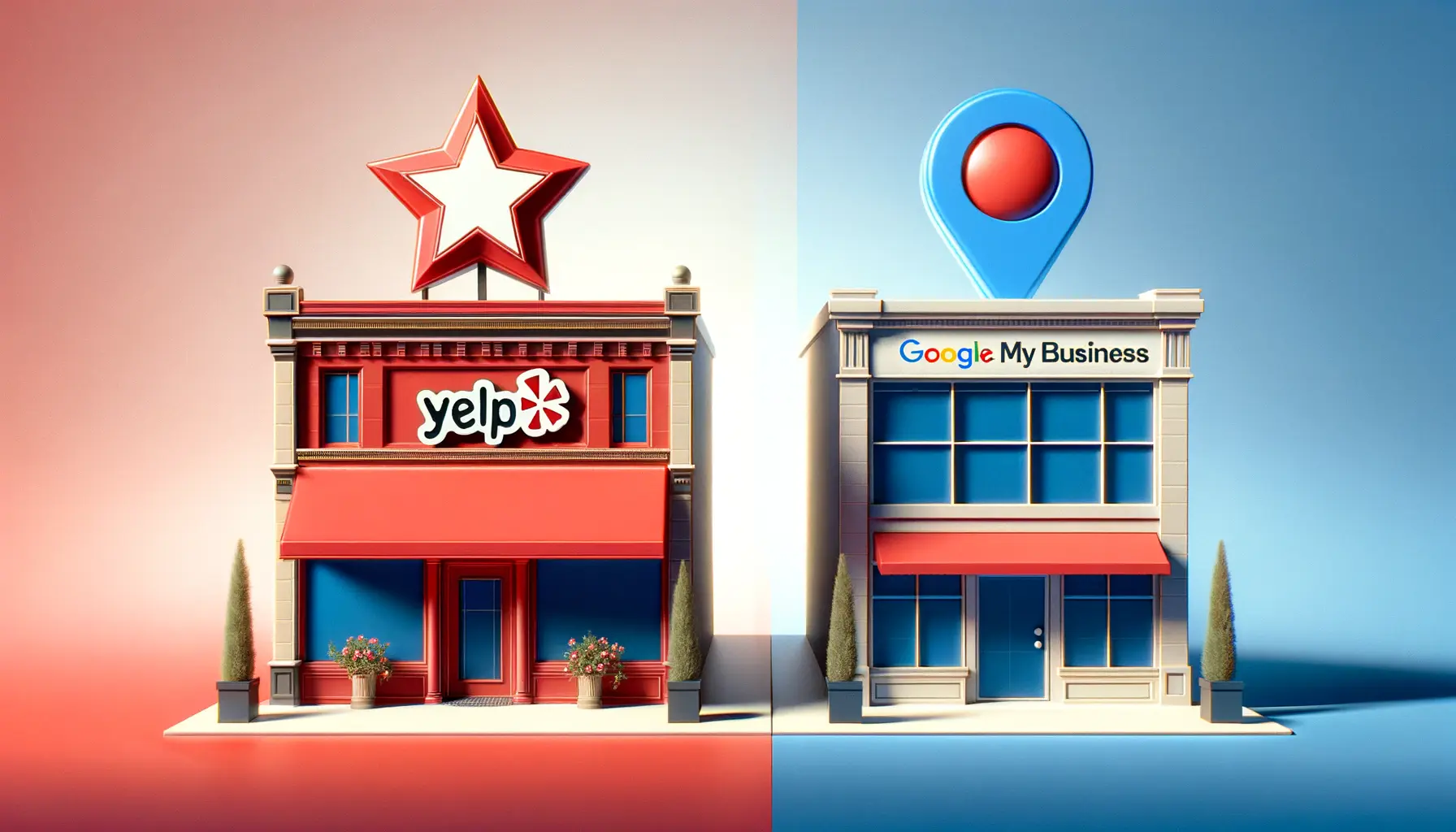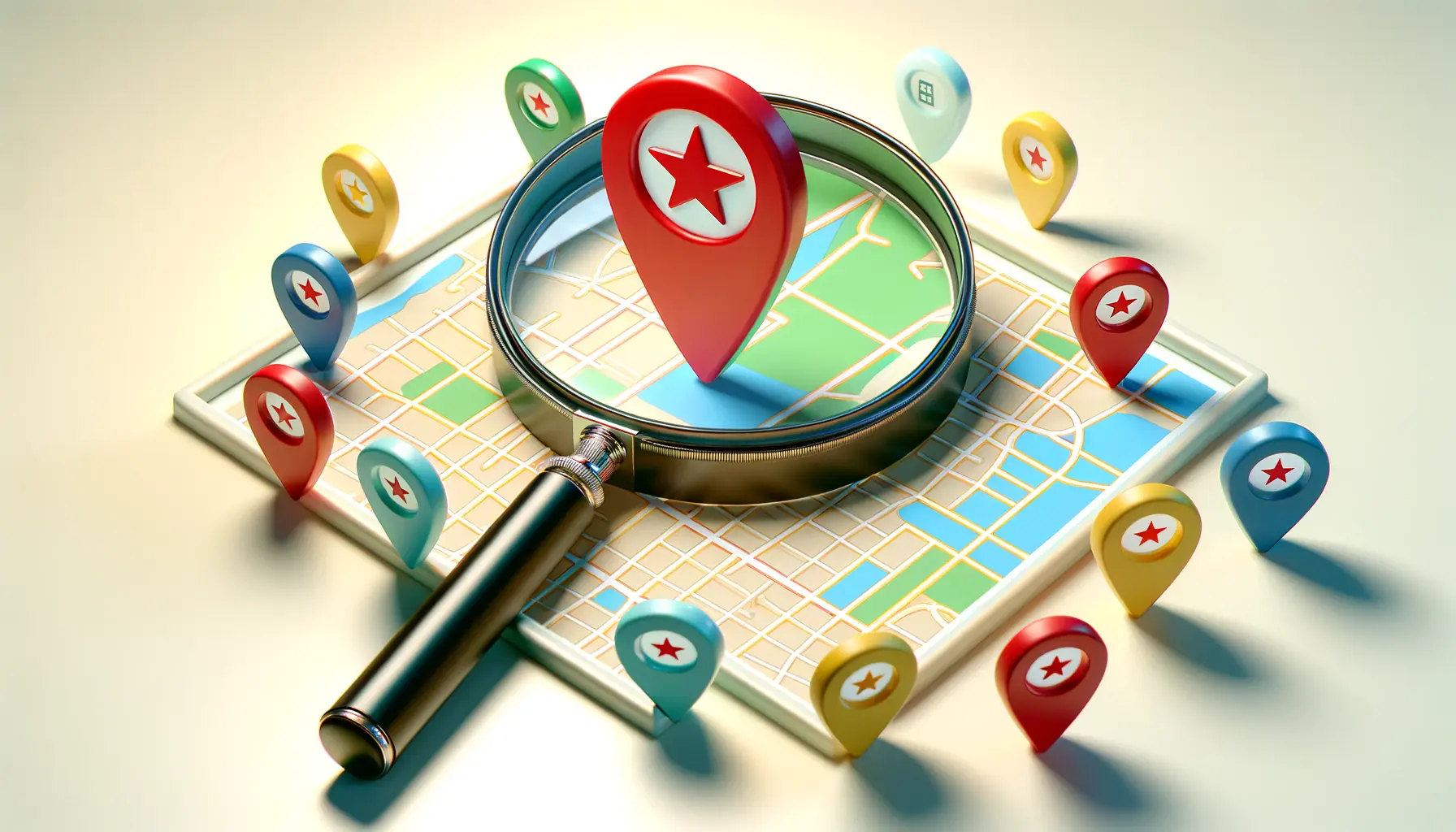In today’s digital age, the importance of online reviews for businesses cannot be overstated.
With the advent of platforms like Yelp and Google My Business (GMB), customers now have powerful tools at their fingertips to share their experiences, good or bad, with the world.
These platforms not only influence consumer decisions but also play a crucial role in shaping a business’s online reputation.
As such, understanding the nuances between Yelp and Google My Business is essential for businesses aiming to optimize their online presence and attract more customers.
While both platforms serve the primary function of hosting reviews, they cater to different audiences and offer unique features that can significantly impact a business’s visibility and customer engagement.
This comparative analysis aims to delve into the specifics of Yelp and Google My Business, highlighting their strengths, weaknesses, and how businesses can effectively leverage each platform to their advantage.
- Understanding Yelp’s Impact on Businesses
- Maximizing Google My Business for Enhanced Visibility
- Strategies for Leveraging Yelp and Google My Business
- Engaging with Customer Reviews: Best Practices
- Utilizing Analytics for Strategic Insights
- Integrating Yelp and Google My Business with Your Marketing Strategy
- Future Trends in Online Business Reviews
- Conclusion: Navigating the Digital Landscape with Yelp and Google My Business
- Yelp and Google My Business FAQs
Understanding Yelp’s Impact on Businesses
The Power of Community-Driven Reviews
Yelp has established itself as a community-driven platform where users can discover local businesses through reviews and ratings.
The strength of Yelp lies in its detailed review system, which allows customers to share their experiences with a level of depth and personal insight that is invaluable to other users.
This community aspect fosters a sense of trust and authenticity, making Yelp a go-to source for reliable business recommendations.
However, the platform’s review filtering algorithm, designed to maintain the quality and reliability of reviews, has been a point of contention for many business owners.
While this system aims to weed out fake or biased reviews, it can sometimes result in genuine reviews being excluded, which can frustrate businesses and customers alike.
Yelp’s community-driven approach and detailed review system make it a valuable platform for customer engagement, but its filtering algorithm can sometimes hinder the visibility of genuine reviews.
Yelp’s Influence on Local SEO
For local businesses, Yelp’s impact on search engine optimization (SEO) cannot be ignored.
The platform’s strong domain authority means that Yelp listings often rank highly in search engine results for local business searches.
This visibility can drive significant traffic to a business’s Yelp page, which, in turn, can lead to increased customer inquiries and visits.
Furthermore, Yelp provides businesses with tools to manage their listings, respond to reviews, and engage with the community, which can further enhance their local SEO efforts.
Despite its benefits, Yelp’s advertising model has raised concerns among some business owners.
The platform offers paid advertising options that can increase a business’s visibility on the site.
While this can be a valuable tool for driving exposure, some businesses feel pressured into purchasing ads to maintain their visibility, leading to mixed feelings about the platform’s monetization strategies.
Maximizing Google My Business for Enhanced Visibility
Google My Business (GMB) stands as a cornerstone in the digital strategy of any business looking to enhance its online visibility.
Unlike Yelp, which primarily focuses on user reviews and ratings, GMB integrates directly with Google’s search ecosystem, offering businesses a comprehensive platform to manage their online presence.
This integration provides a unique advantage, ensuring that accurate business information, including location, contact details, and operating hours, is readily available right within Google’s search results and on Google Maps.
One of the most significant benefits of Google My Business is its direct impact on local search rankings.
A well-optimized GMB profile not only increases a business’s visibility in search results but also improves its chances of appearing in the coveted local “3-pack,” the trio of businesses that appear at the top of Google’s local search results.
This visibility is crucial for attracting local customers and driving foot traffic to brick-and-mortar locations.
Key Features of Google My Business
- Business Information: GMB allows businesses to manage their information across Google’s platforms, ensuring that customers have access to accurate and updated details.
- Customer Reviews: Similar to Yelp, GMB places a strong emphasis on reviews. However, Google’s review system is integrated into its broader ecosystem, making it easier for customers to leave reviews without needing a separate account.
- Insights and Analytics: GMB provides businesses with valuable insights into how customers interact with their listing, including search queries used to find the business, and how many people called directly from the listing.
- Posts and Updates: Businesses can use GMB to post updates, offers, and events directly to their listing, keeping customers informed and engaged.
The accessibility and ease of use of Google My Business make it an indispensable tool for businesses of all sizes.
By actively managing their GMB listing, businesses can significantly enhance their online presence, improve their local SEO, and engage more effectively with their customers.
While Google My Business offers a wide range of features to boost business visibility and customer engagement, it’s essential for businesses to regularly update their information and actively manage their reviews to maintain a positive online presence.
Strategies for Leveraging Yelp and Google My Business
While Yelp and Google My Business (GMB) serve similar purposes in the digital landscape, their unique features and user bases require distinct strategies for effective leverage.
Businesses aiming to maximize their online presence must understand how to utilize each platform’s strengths to their advantage.
Here, we explore tailored strategies for engaging with customers and enhancing visibility on both Yelp and GMB.
Optimizing Your Presence on Yelp
To make the most out of Yelp, businesses should focus on building a robust profile and actively engaging with the community.
Here are some strategies:
- Complete and Update Your Business Profile: Ensure that your Yelp profile is comprehensive, with up-to-date information, high-quality images, and detailed descriptions of your services or products.
- Respond to Reviews: Make it a practice to respond to all reviews, whether positive or negative, in a professional and constructive manner. This shows that you value customer feedback and are committed to improving their experience.
- Encourage Reviews Naturally: While direct solicitation is against Yelp’s policies, you can encourage reviews by displaying Yelp badges in your business or on your website, subtly nudging satisfied customers to share their experiences.
Maximizing Google My Business for Local SEO
Google My Business is a powerful tool for improving local search visibility.
Here are some effective strategies for leveraging GMB:
- Verify Your Business: Ensure your business is verified on GMB. This process gives your business legitimacy in Google’s eyes and is a prerequisite for appearing in local search results and the local 3-pack.
- Collect and Manage Reviews: Encourage your customers to leave reviews on GMB. High-quality, positive reviews can improve your business’s visibility and attractiveness in search results. Use the direct link provided by GMB to make it easy for customers to review your business.
- Utilize Posts and Updates: Regularly post updates, offers, and events to keep your GMB profile active and engaging. This content appears directly in search results and can drive additional traffic to your business.
By adopting these strategies, businesses can enhance their online reputation, improve their visibility in local search results, and engage more effectively with their customer base.
It’s important to remember that success on Yelp and Google My Business doesn’t come overnight but through consistent effort and engagement over time.
Balancing your efforts between Yelp and Google My Business can significantly amplify your online presence, drawing in more customers and fostering trust in your brand.
Engaging with Customer Reviews: Best Practices
Customer reviews are a double-edged sword; they can significantly boost your business’s reputation or, if negative, can harm it.
Engaging with these reviews, whether on Yelp, Google My Business, or any other platform, is crucial for maintaining a positive online presence and building customer trust.
Here are some best practices for engaging with customer reviews that can help businesses navigate this critical aspect of online reputation management.
First and foremost, it’s essential to monitor your reviews regularly.
This proactive approach allows you to respond promptly, demonstrating to your customers and potential customers that you value their feedback and are committed to providing excellent service.
Regular monitoring also helps you quickly identify any negative trends or issues that may need addressing within your business operations.
Responding to Positive Reviews
- Show Appreciation: Always thank the customer for taking the time to leave a review. A simple thank you can go a long way in fostering loyalty and encouraging more positive reviews.
- Personalize Your Response: Personalize your responses where possible by mentioning the customer’s name or referencing specific parts of their review. This personal touch shows that you genuinely value their feedback.
- Encourage Repeat Business: Use positive reviews as an opportunity to invite customers back or to try something new from your business. This can help drive repeat visits and increase customer loyalty.
Addressing Negative Reviews
- Respond Promptly and Professionally: Address negative reviews as quickly as possible with a professional and calm tone. Apologize for their experience and offer to make it right, demonstrating your commitment to customer satisfaction.
- Take the Conversation Offline: For complex issues, invite the customer to continue the conversation offline. Provide contact information so they can reach out directly. This approach helps prevent public back-and-forth and shows you’re serious about resolving their concerns.
- Learn from Feedback: Use negative reviews as feedback to improve your business. If you notice a trend in the complaints, take action to address the underlying issues.
Engaging with customer reviews effectively requires a balance of gratitude, personalization, and professionalism.
By adopting these best practices, businesses can enhance their online reputation, improve customer satisfaction, and even turn critics into loyal supporters.
Engaging with both positive and negative reviews demonstrates to customers that you value their feedback and are committed to continuous improvement.
Utilizing Analytics for Strategic Insights
Both Yelp and Google My Business offer analytics tools that provide valuable insights into how customers interact with your business online.
Understanding and utilizing these analytics can help businesses make informed decisions, tailor their marketing strategies, and ultimately, improve their online presence and customer engagement.
Here’s how businesses can leverage analytics from both platforms for strategic advantage.
Yelp provides businesses with a range of analytics, including the number of views your business page receives, customer engagement metrics, and how users found your listing.
These insights can help you understand the effectiveness of your Yelp presence and identify areas for improvement.
For instance, if you notice a high number of page views but low engagement, it might indicate that your business listing lacks compelling information or attractive visuals.
Google My Business Insights
- Search Queries: GMB shows you the search terms people use to find your business. This information can be invaluable for SEO, helping you understand which keywords to target in your website content and GMB listing.
- Customer Actions: GMB provides data on how customers interact with your listing, including whether they visited your website, requested directions, or called your business. This helps you gauge the effectiveness of your listing and identify which aspects drive the most customer actions.
- Engagement Over Time: Analyzing how customer engagement changes over time can help you identify trends, such as seasonal fluctuations in interest or the impact of specific marketing campaigns.
By regularly reviewing and analyzing these insights, businesses can refine their online strategies to better meet their customers’ needs and preferences.
For example, if GMB insights reveal that many customers request directions to your business, it might be beneficial to include more detailed location information or landmarks in your listing.
Leveraging Yelp Analytics
- User Behavior: Yelp’s analytics dashboard provides insights into how users interact with your listing, such as the number of reviews, check-ins, and photo uploads. This can help you understand what customers value most about your business.
- Demographic Insights: Understanding the demographics of your Yelp reviewers can help you tailor your marketing and operational efforts to better serve your target audience.
- Competitive Analysis: Yelp also offers some level of competitive analysis, allowing you to see how your business stacks up against others in your category in terms of popularity and customer engagement.
Utilizing the analytics provided by Yelp and Google My Business not only helps in fine-tuning your online presence but also in making strategic decisions that can lead to improved business performance.
By understanding customer behaviors and preferences, businesses can enhance their listings, create more targeted marketing campaigns, and ultimately, drive more customer engagement and sales.
Strategic use of Yelp and Google My Business analytics can provide businesses with a competitive edge, helping them to understand and serve their customers better.
Integrating Yelp and Google My Business with Your Marketing Strategy
Incorporating Yelp and Google My Business (GMB) into your overall marketing strategy is not just beneficial; it’s essential for businesses aiming to thrive in the digital age.
These platforms offer unique opportunities for visibility, customer engagement, and feedback that can significantly influence your business’s online and offline success.
Here’s how to seamlessly integrate Yelp and GMB into your marketing efforts to maximize their potential.
Firstly, ensure that your business listings on both Yelp and GMB are not only active but fully optimized.
This means accurate and comprehensive business information, high-quality images, and regular updates.
An optimized listing serves as the foundation of your presence on these platforms and can greatly enhance your visibility in search results.
Encouraging Customer Engagement
- Reviews and Feedback: Actively encourage satisfied customers to leave reviews. While direct solicitation is frowned upon by Yelp, subtle reminders in-store or follow-up emails after a purchase can prompt customers to share their experiences.
- Respond to Reviews: Make it a part of your marketing strategy to respond to all reviews, positive or negative. This engagement shows potential customers that you value feedback and are committed to customer satisfaction.
Leveraging Insights for Targeted Marketing
- Use Analytics: Utilize the analytics tools provided by Yelp and GMB to gain insights into customer behavior and preferences. This data can inform your marketing strategies, helping you to target your audience more effectively.
- Local SEO: Incorporate keywords from customer reviews and search queries into your website and content marketing efforts. This can improve your SEO, making your business more visible to potential customers searching online.
Furthermore, consider integrating user-generated content from Yelp and GMB into your marketing materials.
Highlighting positive reviews on your website or social media can boost your credibility and attract more customers.
This strategy not only showcases real customer experiences but also leverages the social proof inherent in user reviews.
Finally, monitor the performance of your Yelp and GMB listings as part of your regular marketing analysis.
Understanding how these platforms contribute to your overall marketing goals can help you allocate resources more effectively and adjust your strategy as needed.
Neglecting the marketing potential of Yelp and Google My Business can lead to missed opportunities for customer engagement and business growth.
Future Trends in Online Business Reviews
The landscape of online business reviews is continually evolving, with Yelp and Google My Business (GMB) at the forefront of shaping how businesses and customers interact in the digital space.
As we look to the future, several trends are emerging that businesses should be aware of to stay ahead in the game.
Understanding these trends can help businesses adapt their strategies to meet customer expectations and leverage new opportunities for growth.
One significant trend is the increasing importance of authenticity and transparency in reviews.
Consumers are becoming more discerning, often looking beyond star ratings to the content of reviews to gauge their authenticity.
This shift places a premium on genuine customer feedback, encouraging businesses to focus on delivering exceptional experiences that naturally generate positive reviews.
Integration of AI and Machine Learning
- Automated Review Analysis: AI technologies are making it easier for businesses to analyze review data, identifying trends and insights that can inform strategic decisions. This can help businesses address areas needing improvement and capitalize on their strengths.
- Personalized Customer Interactions: Machine learning algorithms can tailor responses to reviews based on the content, tone, and sentiment, making customer interactions more personalized and effective.
The Rise of Visual and Video Reviews
- Enhanced Engagement: With the growing popularity of visual content on social media, customers are increasingly sharing their experiences through photos and videos. Businesses can encourage this trend by creating spaces and experiences that are “Instagrammable” or by hosting review contests that reward the best visual content.
- Video Testimonials: Video reviews or testimonials are becoming a powerful tool for businesses to showcase on their websites or social media platforms. These visuals offer a more dynamic and engaging way to present customer feedback.
Another emerging trend is the integration of reviews into broader digital marketing strategies.
Businesses are beginning to see the value of reviews not just as feedback mechanisms but as content that can be leveraged across various channels.
This includes featuring reviews in email marketing, on websites, and in social media campaigns to build trust and credibility with potential customers.
As we move forward, the role of online reviews in shaping business reputations and influencing customer decisions will only grow.
By staying attuned to these trends and adapting their strategies accordingly, businesses can enhance their online presence, engage more effectively with their customers, and drive growth in an increasingly competitive digital landscape.
Embracing the future trends in online business reviews can provide businesses with a competitive edge, enabling them to connect with their customers in more meaningful and impactful ways.
Conclusion: Navigating the Digital Landscape with Yelp and Google My Business
In the ever-evolving world of digital marketing and online presence, Yelp and Google My Business stand out as pivotal platforms for businesses aiming to enhance their visibility, engage with customers, and ultimately drive growth.
The comparative analysis of these platforms reveals that while each has its unique strengths and challenges, together they offer a comprehensive suite of tools for businesses to manage their online reputation effectively.
Key Takeaways for Businesses
- Optimizing profiles on both Yelp and Google My Business is crucial for maximizing online visibility and attracting potential customers.
- Engaging with customer reviews, whether positive or negative, demonstrates a commitment to customer satisfaction and can significantly impact a business’s reputation.
- Leveraging the analytics and insights provided by these platforms can inform strategic decisions, helping businesses to better understand and serve their target audience.
- Integrating Yelp and Google My Business into the broader marketing strategy enhances a business’s ability to connect with customers across multiple touchpoints.
As we look to the future, the role of online reviews and business listings in shaping consumer behavior and decision-making will only increase.
Businesses that stay ahead of emerging trends, such as the integration of AI for personalized interactions and the rise of visual and video reviews, will be well-positioned to thrive in the digital marketplace.
Embracing the Future of Online Business Reviews
The digital landscape is dynamic, with new technologies and consumer behaviors continually reshaping how businesses and customers interact.
In this context, Yelp and Google My Business are not just platforms for listing business information and gathering reviews; they are essential components of a holistic digital marketing strategy that can adapt to these changes.
By embracing these platforms’ full potential, businesses can not only navigate the complexities of the digital world but also turn challenges into opportunities for growth and engagement.
In conclusion, Yelp and Google My Business are more than mere tools for online reputation management; they are gateways to building lasting relationships with customers, understanding their needs and preferences, and creating tailored experiences that resonate.
As businesses navigate the digital landscape, the strategic use of Yelp and Google My Business will be instrumental in crafting a narrative that attracts, engages, and retains customers in an increasingly competitive environment.
Want your website to top Google search rankings? Leave the SEO to our professional agency!
Yelp and Google My Business FAQs
Explore commonly asked questions about leveraging Yelp and Google My Business for your business’s online presence and reputation management.
Google My Business is generally considered more impactful for local SEO because it’s directly integrated with Google Search and Maps, enhancing visibility.
Both platforms’ reviews significantly impact your business’s online reputation, with GMB influencing local search rankings and Yelp affecting consumer trust.
You can encourage GMB reviews directly, but Yelp’s policies prohibit soliciting reviews, emphasizing organic feedback.
Yes, both platforms provide analytics, offering insights into how customers find and interact with your business online.
Yes, having profiles on both platforms maximizes your online visibility and caters to different customer preferences.
Respond professionally and offer to resolve the issue, showing potential customers your commitment to satisfaction.
Yes, positive reviews can boost your search engine ranking and visibility, leading to increased website traffic.
Regular updates ensure your business information is accurate, helping to maintain a positive online presence.
















